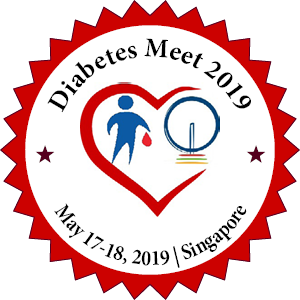Rahul Mandole
Madhavbaug Clinics and Hospitals, India
Title: Efficacy of Comprehensive Diabetes Care (CDC) management program in elderly male patients of type II diabetes mellitus: A Retrospective Study
Biography
Biography: Rahul Mandole
Abstract
Globally, Diabetes Mellitus (DM) prevalence has created menace, being major culprit of increased mortality and morbidity and health care expenditures. India is 2nd country with maximum number of diabetic patients, with an estimated prevalence of around 10%. Comprehensive Diabetes Care (CDC) is a combination of Panchakarma and diet management. This study was conducted to evaluate the effect of CDC on glycosylated haemoglobin (HbA1c), Body Mass Index (BMI), body weight, abdominal girth and dependency on conventional therapy in DM Patients.This retrospective study was conducted in from July 2017 to January 2018, where in the data of elderly male type 2 DM patients (HbA1c>6.5%) who attended Madhavbaug clinics in Maharashtra, India were identified. Data of patients who were administered CDC (60-75 minutes) with minimum 6 sittings over 90±15 days were considered. Variables were compared between day 1 and day 90 of CDC. Out of 48 enrolled elderly male patients, 34 were included for analysis. CDC showed significant improvement in HbA1c from 8.27±0.96 to 7.1±1.30; (p=0.0001), BMI from 27.65±3.20 to 25.91±3.29; (p<0.0001), weight from 73.75±10.76 to 69.46±10.39; (p<0.0001). Abdominal girth (from 100.0±9.08 to 95.36±9.10; (p<0.0001), also showed significant reduction. Dependency on concomitant medicines was reduced, with number of patients on no concomitant medicines increasing from 3-15%, CDC and allopathy both are found to be efficacious; but CDC acts dually, by reducing HbA1c as well as reducing dependency on allopathic medications.

